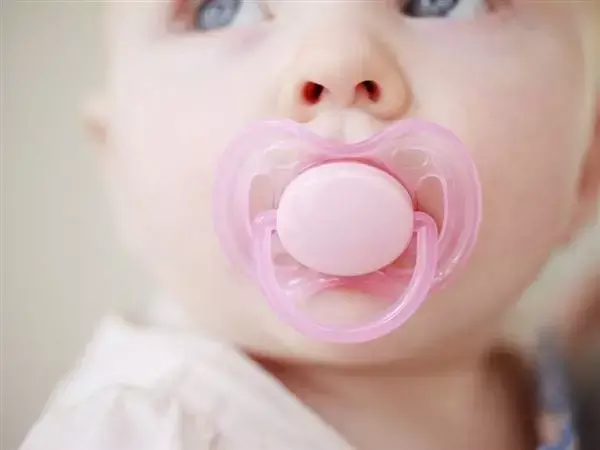- Home
- Medical news & Guidelines
- Anesthesiology
- Cardiology and CTVS
- Critical Care
- Dentistry
- Dermatology
- Diabetes and Endocrinology
- ENT
- Gastroenterology
- Medicine
- Nephrology
- Neurology
- Obstretics-Gynaecology
- Oncology
- Ophthalmology
- Orthopaedics
- Pediatrics-Neonatology
- Psychiatry
- Pulmonology
- Radiology
- Surgery
- Urology
- Laboratory Medicine
- Diet
- Nursing
- Paramedical
- Physiotherapy
- Health news
- Fact Check
- Bone Health Fact Check
- Brain Health Fact Check
- Cancer Related Fact Check
- Child Care Fact Check
- Dental and oral health fact check
- Diabetes and metabolic health fact check
- Diet and Nutrition Fact Check
- Eye and ENT Care Fact Check
- Fitness fact check
- Gut health fact check
- Heart health fact check
- Kidney health fact check
- Medical education fact check
- Men's health fact check
- Respiratory fact check
- Skin and hair care fact check
- Vaccine and Immunization fact check
- Women's health fact check
- AYUSH
- State News
- Andaman and Nicobar Islands
- Andhra Pradesh
- Arunachal Pradesh
- Assam
- Bihar
- Chandigarh
- Chattisgarh
- Dadra and Nagar Haveli
- Daman and Diu
- Delhi
- Goa
- Gujarat
- Haryana
- Himachal Pradesh
- Jammu & Kashmir
- Jharkhand
- Karnataka
- Kerala
- Ladakh
- Lakshadweep
- Madhya Pradesh
- Maharashtra
- Manipur
- Meghalaya
- Mizoram
- Nagaland
- Odisha
- Puducherry
- Punjab
- Rajasthan
- Sikkim
- Tamil Nadu
- Telangana
- Tripura
- Uttar Pradesh
- Uttrakhand
- West Bengal
- Medical Education
- Industry
Chemically Sterilized Pacifiers Tied To Increased Risk Of Food Allergy

Environmental microbial exposure plays a role in immune system development and susceptibility to food allergy, especially in infants. In a recent study, researchers have found that cleaning pacifiers with chemical antiseptics may increase the risk of food allergy by age 1 year. The research has been published in the Journal of Allergy and Clinical Immunology on March 30, 2021.
Pacifiers (also known as dummies or soothers) are one of the sources of microbial exposure in early life. Despite most infant pacifiers being cleaned in some way, no previous work has finely classified pacifier use in the context of the associated cleaning method (sanitization), nor has challenge-proven FA been examined. Therefore, Dr Anne-LouisePonsonby and her team conducted a study to investigate whether infant pacifier use during the first postnatal year, with further consideration of sanitization, alters the risk of food allergy by age 1 year.
The Barwon Infant Study (BIS) was a population-based birth cohort study of 1074 infants. The researchers recruited pregnant mothers at under 28 weeks gestation in southeast Australia, with 894 families followed up when infants turned one year. They collected the data through questionnaires at recruitment and infant ages 1, 6, and 12 months, included pacifier use and pacifier sanitization (defined as the joint exposure of a pacifier and cleaning methods). They assessed the challenge-proven food allergy at 12 months.
Key findings of the study were:
- Upon evaluation, the researchers found that any pacifier use was associated with food allergy (adjusted odds ratio, 1.94) at six months of age, but not with other ages.
- They noted that this overall association was driven by the joint exposure of pacifier-antiseptic use (adjusted odds ratio, 4.83) compared with no pacifier use.
- They also noted that using pacifiers without antiseptic at six months was not associated with food allergy.
- They reported that antiseptic cleaning was still associated with food allergy (adjusted odds ratio, 3.56) compared with no antiseptic use among pacifier users.
- Also, they mentioned that persistent and repeated antiseptic use over the first six months was associated with higher food allergy risk.
The authors concluded, "This is the first report of a pacifier-antiseptic combination being associated with a higher risk of subsequent food allergy. Future work should investigate underlying biological pathways."
For further information:
DOI: https://doi.org/10.1016/j.jaci.2021.01.032
Medical Dialogues Bureau consists of a team of passionate medical/scientific writers, led by doctors and healthcare researchers. Our team efforts to bring you updated and timely news about the important happenings of the medical and healthcare sector. Our editorial team can be reached at editorial@medicaldialogues.in.
Dr Kamal Kant Kohli-MBBS, DTCD- a chest specialist with more than 30 years of practice and a flair for writing clinical articles, Dr Kamal Kant Kohli joined Medical Dialogues as a Chief Editor of Medical News. Besides writing articles, as an editor, he proofreads and verifies all the medical content published on Medical Dialogues including those coming from journals, studies,medical conferences,guidelines etc. Email: drkohli@medicaldialogues.in. Contact no. 011-43720751


